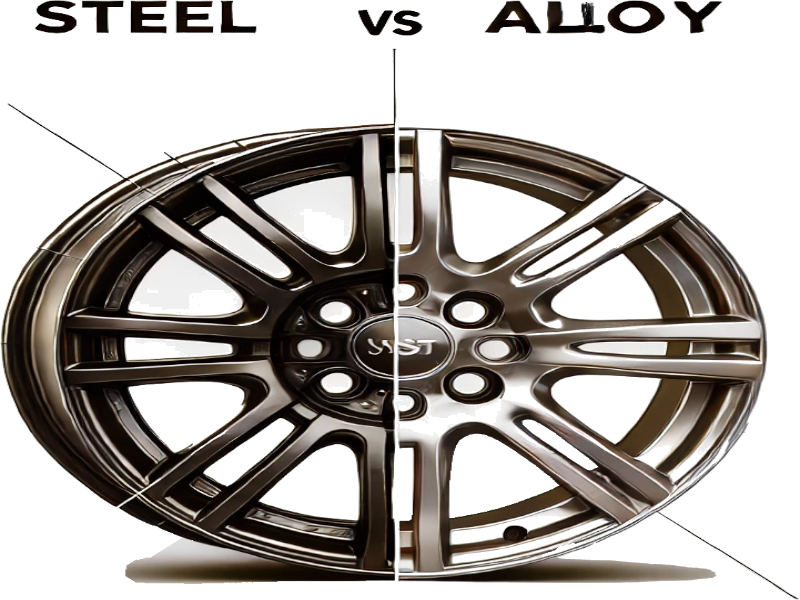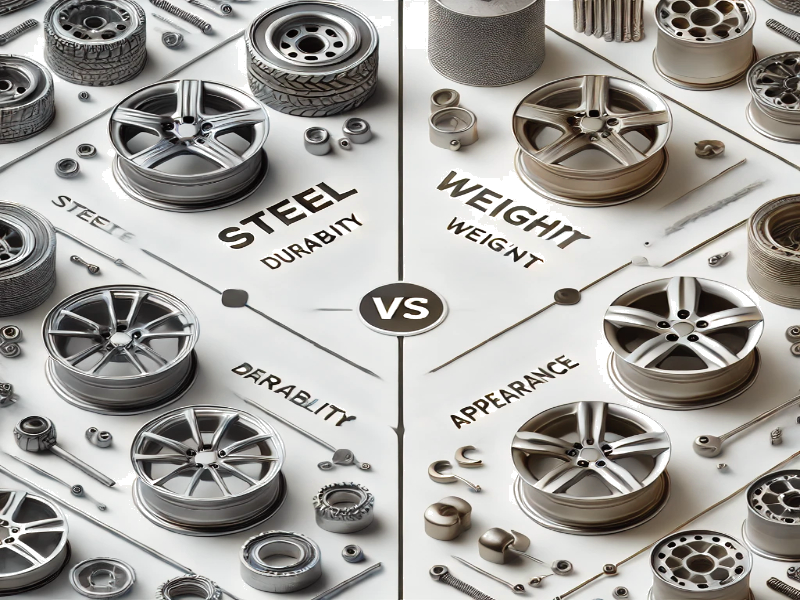Overview of Steel and Alloy Wheels
Steel and alloy wheels are the two most common types of wheels available for vehicles. Steel wheels are known for their durability and affordability, while alloy wheels are favored for their performance and aesthetics. Both have their own set of advantages and drawbacks, which we'll explore below.

Pros and Cons of Steel Wheels
Pros of Steel Wheels
- Durability: Steel wheels are incredibly tough and can withstand harsh driving conditions, making them a popular choice for winter driving and off-roading.
- Affordability: Steel wheels are often more affordable than alloy wheels, making them a practical option for budget-conscious drivers.
- Easy to Repair: If a steel wheel is bent or damaged, it can usually be repaired relatively easily compared to alloy wheels.
Cons of Steel Wheels
- Heavy Weight: Steel wheels are heavier than alloy wheels, which can negatively affect acceleration, fuel efficiency, and handling.
- Lack of Aesthetics: Steel wheels are typically more functional than stylish. They often come with plastic hubcaps to cover their basic appearance.
- Limited Design Options: Steel wheels don't offer the variety of designs that alloy wheels do, limiting customization options.
Pros and Cons of Alloy Wheels
Pros of Alloy Wheels
- Lightweight: Alloy wheels are lighter than steel, improving acceleration, braking, and overall handling. This can also lead to better fuel efficiency.
- Design and Aesthetics: Alloy wheels come in a wide range of designs and finishes, making them a popular choice for drivers who want to enhance their vehicle’s appearance.
- Performance Benefits: The lightweight nature of alloy wheels can improve a vehicle's performance, especially in sports cars or high-performance vehicles.
Cons of Alloy Wheels
- Cost: Alloy wheels are generally more expensive than steel wheels, which can make them less accessible for drivers on a budget.
- More Susceptible to Damage: While alloy wheels are lighter and more stylish, they are also more prone to bending and cracking under extreme conditions or rough driving.
Which Wheels are Right for You?
The choice between steel and alloy wheels comes down to your driving needs, budget, and aesthetic preferences. If you need a tough, affordable wheel for harsh conditions, steel wheels may be the better option. If you prioritize performance and style, alloy wheels offer a lightweight and customizable solution. Consider your vehicle's requirements and how you plan to use it before making your decision.

Conclusion
Both steel and alloy wheels have their unique benefits and drawbacks. Steel wheels are durable and affordable, while alloy wheels offer performance advantages and a sleek design. Ultimately, the best wheels for your vehicle depend on your specific needs, driving conditions, and personal preferences.

Comments
Log in to leave a comment.
Which type of wheel is better for harsh weather conditions, like snow and ice?